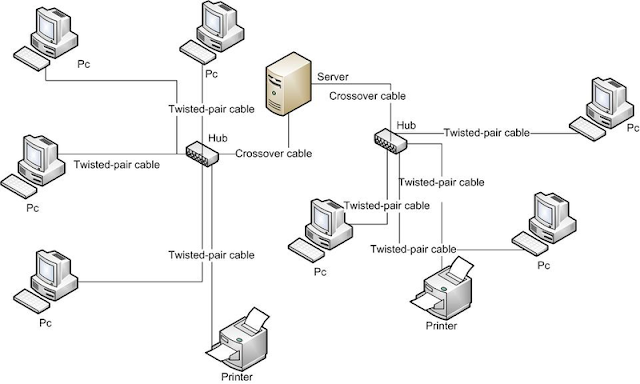TCP/IP Networks
TCP/IP Networks, Regardless of whether it is a simple dial-up PPP connection to an Internet provider or a server that site at the center of your company and servers up Web pages, FTP downloads, and peripheral pools, Linux is a hands-down winner over the current alternatives. It offers full IPv4 support (even IPv6), including the capability to do the following:
- TCP/IP Networks, Forward network packets-Can make it a nice gateway system to the Internet
- TCP/IP Networks, Masquerade network packets-Provides the capability to use only valid IP address to give access to networks, such as the Internet, to an entire company
- TCP/IP Networks, Tunnel network packets-Creates a pipeline using IP that permits other IP packets, or even no-IP packets such as IPX packets from NetWare, to pass across the connection in encapsulated form
- TCP/IP Networks, Alias IP addresses-Hosts multiple addresses on one network interface, which is useful when providing virtual hosting services
- TCP/IP Networks, Filter network packets-Packets filtering firewall capabilities are contained within the Linux kernel, just waiting to be configured
TCP/IP Networks
Also, special things you can do with TCP/IP Networks-such as remote configuration via DHCP and bootp - are possible with OpenLinux, FTP service, Web Services, NFS file system sharing, mail (POP,SMTP), USENET news, and even video conferencing can be done either with software that is included with OpenLinux or with a few items that are freely downloadable from the Internet.
 |
| TCP/IP Networks |
Basically, if it can be done with TCP/IP Networks, it can be done with OpenLinux.
INTRANETS
Intranets-small versions of the Internet available solely within a closed network such as one found within a company-are quite popular today. The capability to use one set of tools to access both intra- and extra- company network services such as mail and document distribution is smart from an administration standpoint. Also, services that are popular on the Internet typically offer, in one form or another, inexpensive or free client software; this makes the choise economical as well. Web browsers, news readers, and other client software can be used for Internet access as well as for accessing intra-company network services.
All you need to create an intranet complete with the major services that everyone has come to depend on from the Internet is included with most distributions of Linux. There is the Apache Web server, sendmail for mail transportation, and POP3 for mail downloading (as well as IMAP for those who want to leave all mail on central mail servers). There is also INN for news servers, BIND for name resolution services, and even IP masquerading features to help your company/group get the internal systems on the intranet out to the Internet. These are all the same tools that are used as the backbone of the Internet.
TCP/IP Networks services are not the only network services offered by Linux, though. Linux fits in well with heterogeneous networking scenarios, combining different protocols for file and print sharing services into one cooperative system; each networking system is capable of sharing the services of another, as you will soon see.




0 Comments